When Englishman Douglas Maclagan first traveled to Nepal in 1993, little did he know that the trip would change his life – and the lives of many others – forever. What began as a harrowing encounter led to an extraordinary tourism project in the foothills of the Himalayas.
An encounter that changed everything – The story of Douglas Maclagan
Nepal is a country of majestic mountains, spiritual places and warm people that attracts travelers from all over the world. One such traveler was Douglas Maclagan from England. It could have been a “normal” trip had a woman not pressed her sick infant into his arms. “Help!” Her look seemed to say. But all he could do was hand it back to her. “I’m not a doctor,” he said helplessly. The child died that night.
Douglas learned that at the time (1993), infant mortality in Nepal was extremely high. Approximately 34% of children did not reach school age. Preventable causes such as infectious diseases, diarrhea, and pneumonia were responsible. There was a lack of both a reliable health care system and adequate facilities for the care and treatment of children.
An inheritance opened up new possibilities
Shortly after that fateful encounter, Douglas’s grandfather died, leaving him a house in England. With the money from the sale of the house, he did what he had wanted to do since the day the woman gave him her sick child: he flew to Nepal and opened two daycare centers for young children in 1995. These grew into today’s Right4Children organization, which has helped more than 40,000 children to date.
Die Daycare-Zentren bestehen aus kindgerechten Betreuungsräumen mit geschultem Personal, wo Eltern ihre Kinder im Alter von 1 bis 5 Jahren tagsüber hinbringen können. . Es gibt Spiele, warme Mahlzeiten und eine hygienische Umgebung mit Gesundheitsvorsorge. Der erste Bericht zeigte: Kein einziges der betreuten Kinder starb.
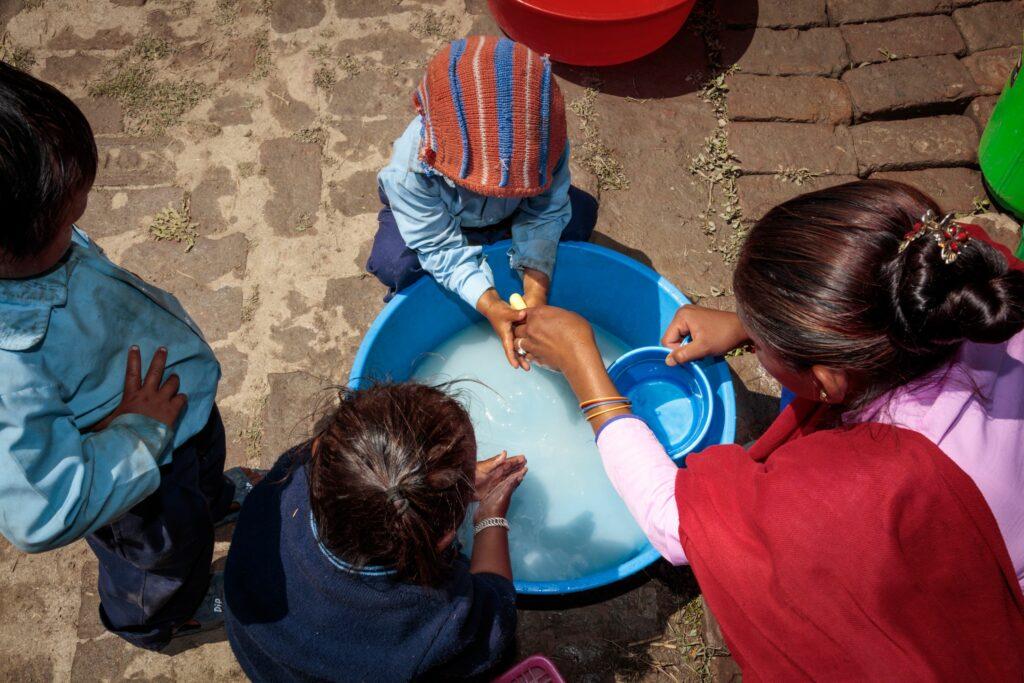
Daycare centers for strong and healthy children
People in neighboring villages also wanted daycare centers for their children, so Douglas approached the provincial government about opening more centers. However, the government told him that he would first have to set up more daycare centers throughout the province and provide a detailed report on their development to demonstrate the benefits of these facilities. The only support he received from the monarchy was recognition of his work as an NGO. But he still had to raise the money for the centers himself.
In 1996, he used his last money to fly to Hong Kong (then still British) to promote his project. On the side, he waited tables at the Hard Rock Cafe. Through newspaper and television reports, he was able to publicize his idea and raise funds. First one daycare center was added, then three more. Gordon Oldham became Chairman of the Child Welfare Scheme (CWS) in Hong Kong and is still Chairman of the entire Pavilions Hotels & Resorts Group.
Love in Nepal – Douglas and Incuba
During this time, Douglas also met another important person: Incuba. The Nepalese was one of the women who had been trained as caregivers in the daycare centers. They shared not only a vision for the children of Nepal, but also love. Today, they are married and have three daughters. From the beginning, Douglas had a partner who knew the local conditions and people. This turned out to be very important because war was coming.
Nepal in the grip of civil war (1996-2006) – Sustained commitment in difficult times
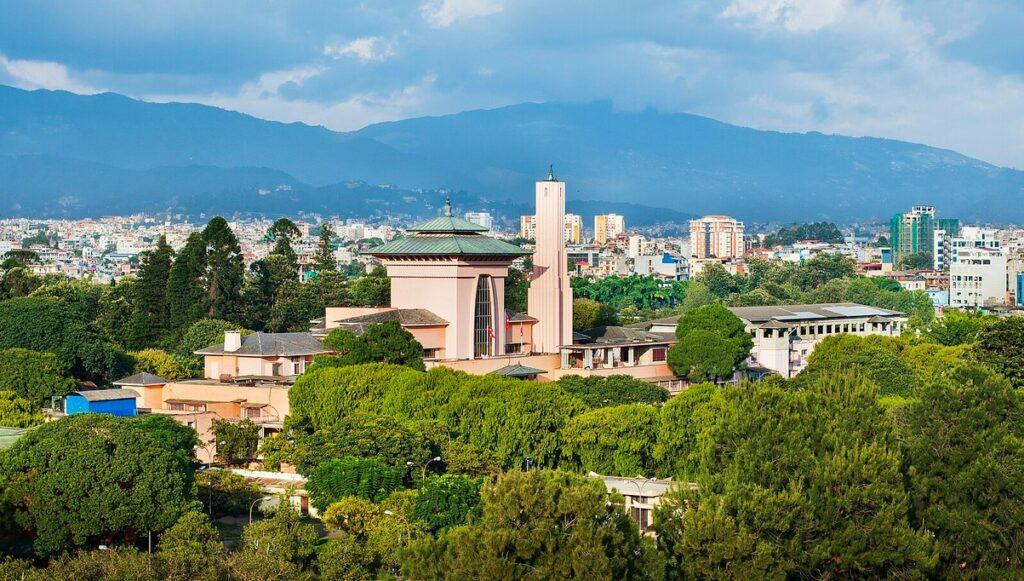
Until 2008, Nepal was a Hindu kingdom ruled by a brutal king. In 1996, the Communist Party rose up against him. A Maoist guerrilla force attacked police stations, robbed banks, and drove out landlords. They demanded the removal of the ruling elite and land reform. A ten-year civil war ensued, leaving more than 16,000 dead, 100,000 refugees, and scores of missing persons and political prisoners.
Douglas and Incuba look back on those days in their eco-booklet:
“Many NGOs left the country out of fear, but CWS stayed to help people when they needed it most. In remote areas, hundreds of children were recruited as soldiers. Fear led to a mass exodus from villages to cities in the hope of safety and protection. Unfortunately, the reality was that many children left school and became child laborers, street children, or domestic slaves. Young girls and women were trafficked across borders and forced into prostitution.”
During this time, they built:
- A center for street children
- A vocational training center for practical trades such as plumbing and electrician (running until 2015)
- The Asha Primary Health Clinic in Pokhara (still in operation)
Tourism as a source of income
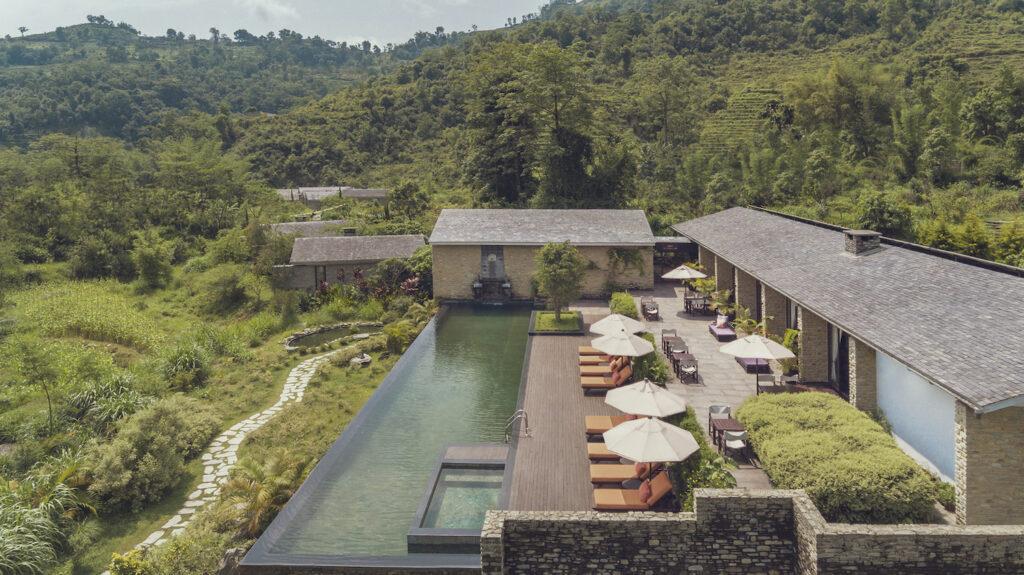
When the global financial crisis hit in 2008, many of the donations Douglas and Incuba had been receiving (mostly from the UK and Hong Kong) suddenly stopped. The couple recalls this as a wake-up call. They felt the need to start a company that could fund charitable projects.
Financial support from the family
Before Douglas’ mother died in 2011, she visited the couple in Nepal and showed them the property near Pokhara that is now the Green PearlsⓇ Resort Pavilions Himalayas – The Farm. “I will leave you money,” she said in essence. “Money to start a business that will fund the charity projects that have already done so much good for the people of Nepal.”
Thus, the property with agricultural land in Chisapani was purchased and The Pavilions Himalayas – The Farm was born. It opened in 2015. The resort consists of 15 spacious villas that combine traditional Nepalese style with luxury. There is a swimming pool, outdoor hot tub, spa area with sauna, gym, yoga and meditation room, clubhouse and restaurant. It became part of the Pavilions Global Collection, which includes boutique resorts in other locations around the world, including Bali and Phuket.
Organic farming and sustainability
Nepal is a largely agricultural country. “About 70 percent of Nepal’s working population is engaged in small-scale subsistence farming,” writes the UN. The Chisapani property has been transformed into a certified organic farm. Douglas and Incuba have been a role model for local farmers, showing them an alternative yet profitable way to transition from traditional agriculture to organic farming.
The local farmers employed on the farm have learned all about organic farming and have received business training. The first recipient of the harvest is the hotel kitchen. So by staying at Pavilions Himalayas – The Farm, you are not only eating absolutely fresh food, you are also supporting the farmers and nature.
Green Initiatives
But it is not just the farming that makes the lodge sustainable. The electricity is generated by solar panels, there is a biogas plant on the property that produces energy for cooking, gray water is used and biodegradable cleaning products are produced.
“We set out to create one of the most environmentally friendly hotels in the world, and I think we’ve succeeded.” – Douglas Maclagan, interviewed by Nepali Times
Looking back on 30 years of helping children and 10 years of running a hotel
Douglas began working with the daycare centers in 1995, and Pavilions Himalayas – The Farm opened in 2015. In a press release in February 2025, they looked back on the project. They highlighted the now-completed Child Friendly School project, which has reached more than 14,000 students, and a new initiative to combat human trafficking. This initiative has already reached more than 4,400 young women and girls.
Travel and do good
Nepal attracts travelers from all over the world. But behind the breathtaking scenery lies a moving story. The Pavilions Himalayas – The Farm is not only a sustainable retreat for travelers, but also a source of support for the community.
Here you have the opportunity to have an unforgettable vacation in Nepal while doing something good for the environment and the local people.
Save this article to Pinterest!
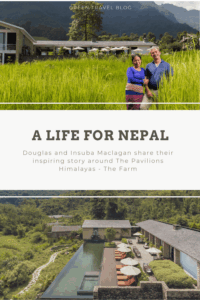
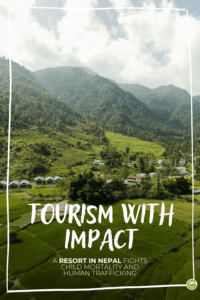
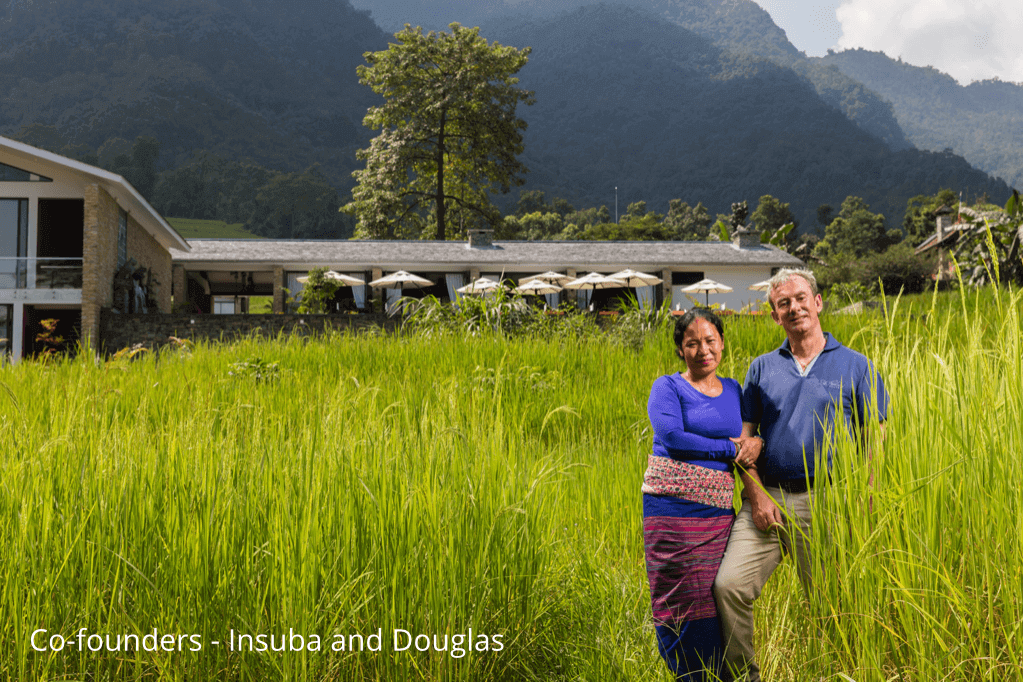

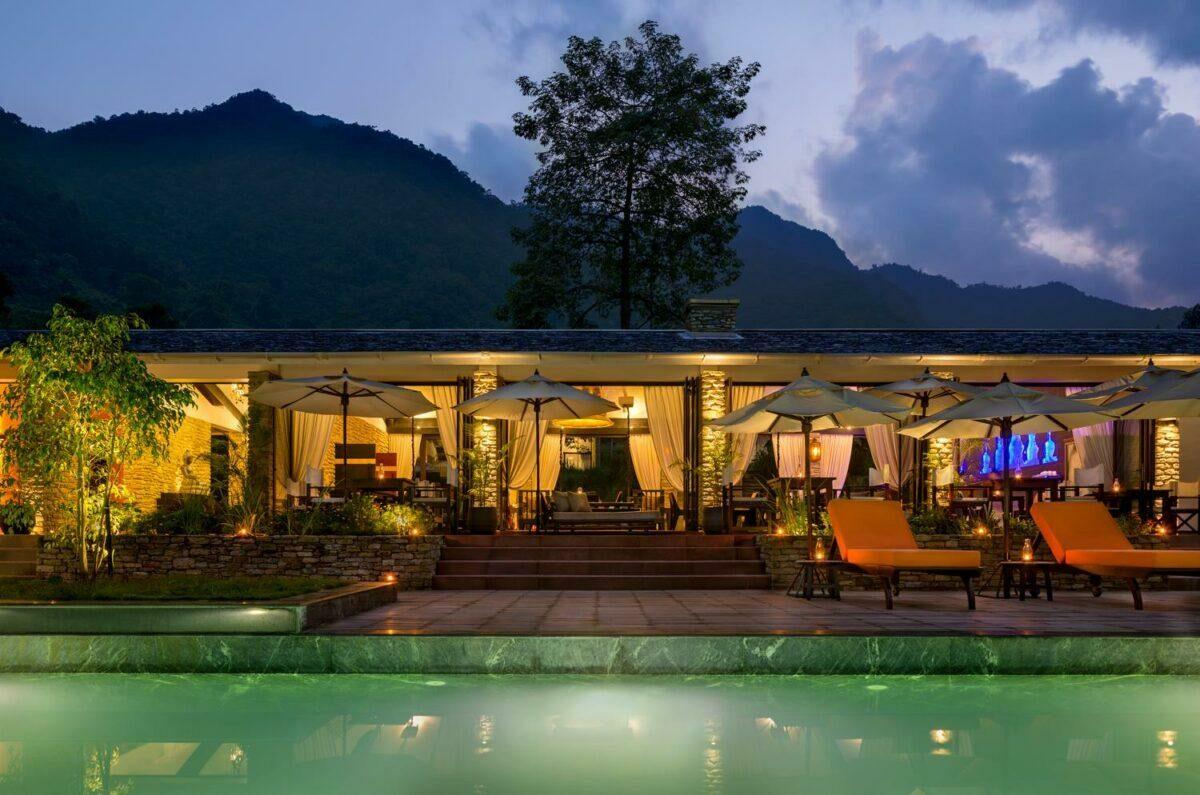


Thank you so much for such a lovely article with informative content. I hope to see more of similar articles.